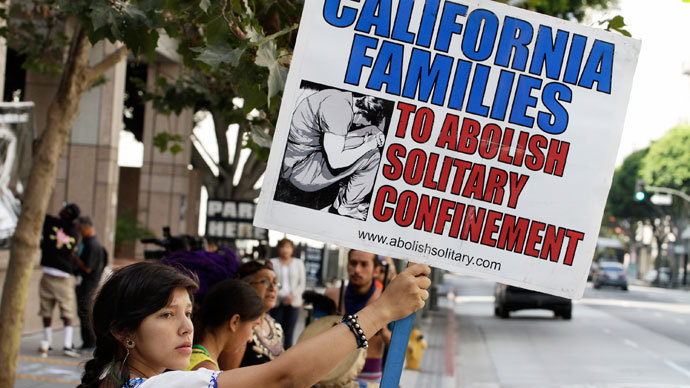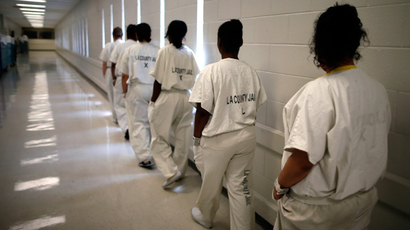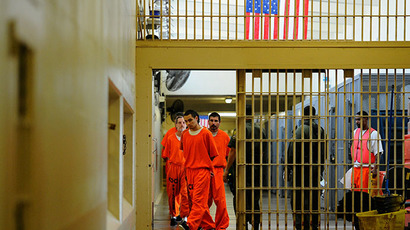California hunger-striking prisoner dies in solitary confinement – activists

A California prisoner has died in solitary confinement while reportedly participating in a hunger strike to protest inmates' conditions, prison activists said on Monday. But state corrections officials say the death is being investigated as a suicide.
Bill “Guero” Sell, 32, was found dead one week ago inside Corcoan
State Prison’s Secure-Housing-Unit (SHU) - a solitary confinement
cell. Activists say that Sell’s death was a result of his
participation in the California hunger strike - a movement of
approximately 1,000 inmates who are demonstrating against state
prison conditions, including an increasing reliance on solitary
confinement as a punishment.
“Advocates are outraged at Sell’s death, noting that it could
have been prevented if [prison officials] had negotiated with
strikes,” the Prisoner Hunger Strike Solidarity Coalition
announced in a statement. The Coalition claimed that multiple
other inmates reported Sell was participating in the hunger
strike and sought medical attention several days before his
death.
Corcoran prison officials said they are treating the death as a
possible suicide but are awaiting the Kings County coroner’s
report before making a final determination on the cause of death,
AP reported. They deny Sell was one of the inmates participating
in the hunger strike.
“It’s irresponsible and inflammatory for hunger strike
supporters to say that this inmate, whose death is being
investigated as a suicide, died as a result of the hunger
strike,” California Department of Corrections spokesperson
Deborah Hoffman said in a Saturday statement. “The inmate was
not participating in the hunger strike at the time of his
death.”

Sell was in the midst of serving a life sentence for attempted
murder and was awaiting trial for the murder of a cellmate.
Leaders of the Mexican Mafia – Nuestra Familia and the Black
Guerilla Family - first called for a mass hunger strike on July 8
to voice their opposition to indefinite detention in solitary
confinement. Isolation has become increasingly popular among
prison officials, even as the United Nations, American Civil
Liberties Union, and other human rights organizations have come
to agree that the practice worsens mental illness and can
irreparably harm an individual’s ability to socialize.
Inmates are frequently isolated for indefinite periods of time,
sometimes longer than a decade.
More than 30,000 convicts refused meals in the first days of the
strike. Over 20 days later, roughly 1,000 inmates at 11 prisons
were still participating.
Prison infirmaries have treated six hunger strikers for symptoms
including dehydration, dizziness, and disorientation. At least a
dozen other inmates have lost more than 10 per cent of their body
fat, according to the LA Times.
One of the seven mediators attempting to meet with California
Governor Jerry Brown and state administrators on behalf of the
incarcerated population said that attempts to compromise have
been fruitless.
“They had a chance to negotiate, but have refused to discuss
the situation at all,” Ronald Ahnen told AP. “Obviously,
the longer the strike continues, the chances increased that
something like this was going to happen.”















